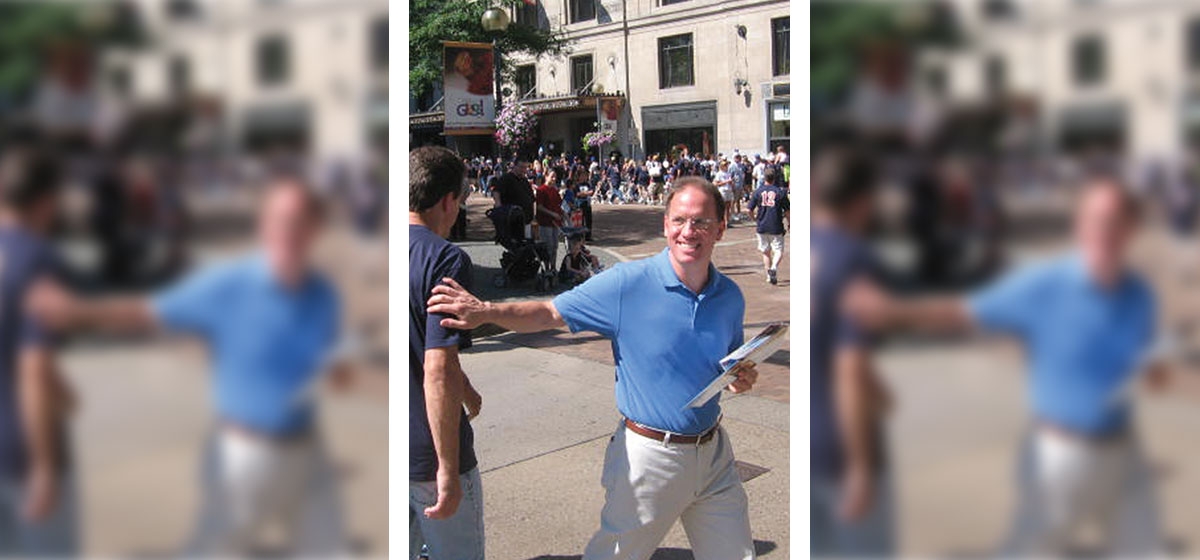Campaign Retrospective

“I can teach anybody how to get what they want out of life. The problem is that I can’t find anybody who can tell me what they want.” — Mark Twain
My campaign for mayor showed me two Pittsburghs. The first exists as all others do, with big problems, big challenges and big possibilities. A murky picture of it appears in surveys, studies and analyses that our fellow civic-minded citizens love so much. The second city, however, is a quirky, weird and wonderful place unlike any I’ve known. It exists in Gooski’s in Polish Hill, robots that crawl in pipes, lawn chairs that hold parking spaces, and the Warhola family. However, both cities can only really be understood by talking to the people who live here. After all, a city is its people.
And I talked to a lot of people in this city. In a sense, this campaign helped me complete a very large circle in my life and was, as a former colleague in the Pentagon used to say of challenging experiences, a “PGO” — a personal growth opportunity. Some experiences were confusing, as when one of my eager supporters, seeing me from his car as I walked on the sidewalk, smiled and waved frantically. He drove straight at me, up onto and then over that same sidewalk. He threw his door open (as I was peeling myself off the side of a nearby building) to ask breathlessly, “Hey, Mark! Do you know where the Starbucks is?”
Other experiences tested my ego. A very attractive woman approached me, clasped my hand warmly and leaned in to tell me, “You don’t seem nearly as fat as I thought you would be.” I thanked her for her kind words.
If you want to talk to a lot of people, you have to find a lot of people to talk to. This is harder than you might think. The trick, given limited time and energy (yours and theirs), is getting them in one place. To that end, we did a lot of “Meet & Greets.”
But even then you couldn’t be sure that would work as planned.
For instance, when I arrived at one of the “M&Gs,” it looked more like a party, a great party. Three empty kegs nearby provided strong evidence. The gracious host introduced me and asked me to say a few words. I began, “Hi, I’m Mark DeSantis and I …”
“We know that!” a man shouted, “What are you going to do about the crime?” he continued emphatically. At that moment, a disembodied female voice retorted, “He should bring more police,” to which another unseen female voice yelled, “He should be allowed to speak!” to which still another person to my left rejoined (to her or me — I’m still not sure), “and you shouldn’t!” to which (almost) everyone laughed. The host attempted to restore order by going straight to Q&A. “Mark,” he said as he looked cautiously at his boisterous guests, “Why should we vote for a Republican?” I responded, “I …” “Who cares?!” yelled (and I mean yelled) a man sitting in front of me. “Vote for the man!” he added. “The ‘Man’ is George Bush,” said another. This last exchange started yet another round of discussion among the guests and ended my presentation. As I was leaving, I overheard a man by the keg say, “What the @#$*! The guy didn’t have much to say.”
One the most interesting things about us Pittsburghers is that we like to complain. Some of us even complain about complainers. “Pittsburgh has a self-esteem problem,” is the common refrain. That refrain is wrong, however. If you listen closely to complainers and the complainers about complainers, you realize this is not angry and pointless grousing. What you hear is a passion and deep love for their community, but a love that is, here and now, unrequited.
One of my most memorable experiences happened near the end of the campaign. In fact, I’m still pondering that sermon delivered by the Rev. William Curtis of Mount Ararat Church two days before Election Day. I can’t do justice to it, but I will try: real dissatisfaction — not the casual sort but the nagging and persistent kind — is a gift if reflection reveals its true source and, once understood, allows it to be addressed. Real dissatisfaction exists when we face up to an unmet ideal, perhaps buried deep within our mind and soul.
The lasting impression I have months after losing my bid for mayor is that we Pittsburghers are happy but not satisfied — not by a long shot — with what we are and where we’re going. What I see and what I wanted everyone else to see is that dissatisfaction is not something to run from or bury. Nor is it something to mask with pointless feel-good campaigns, political or otherwise. It is something we must embrace because, as Rev. Curtis so eloquently put it, it is the patch of blue sky toward which we point our true hopes and true purpose as a people and a city.





